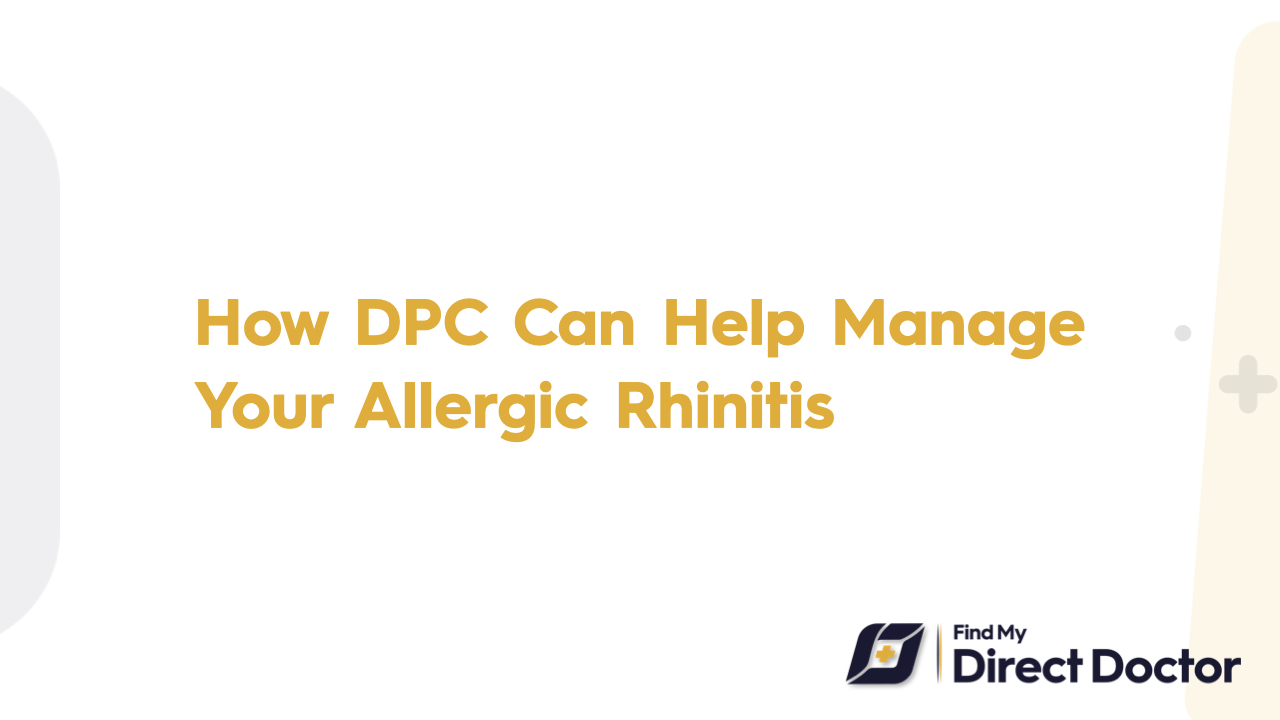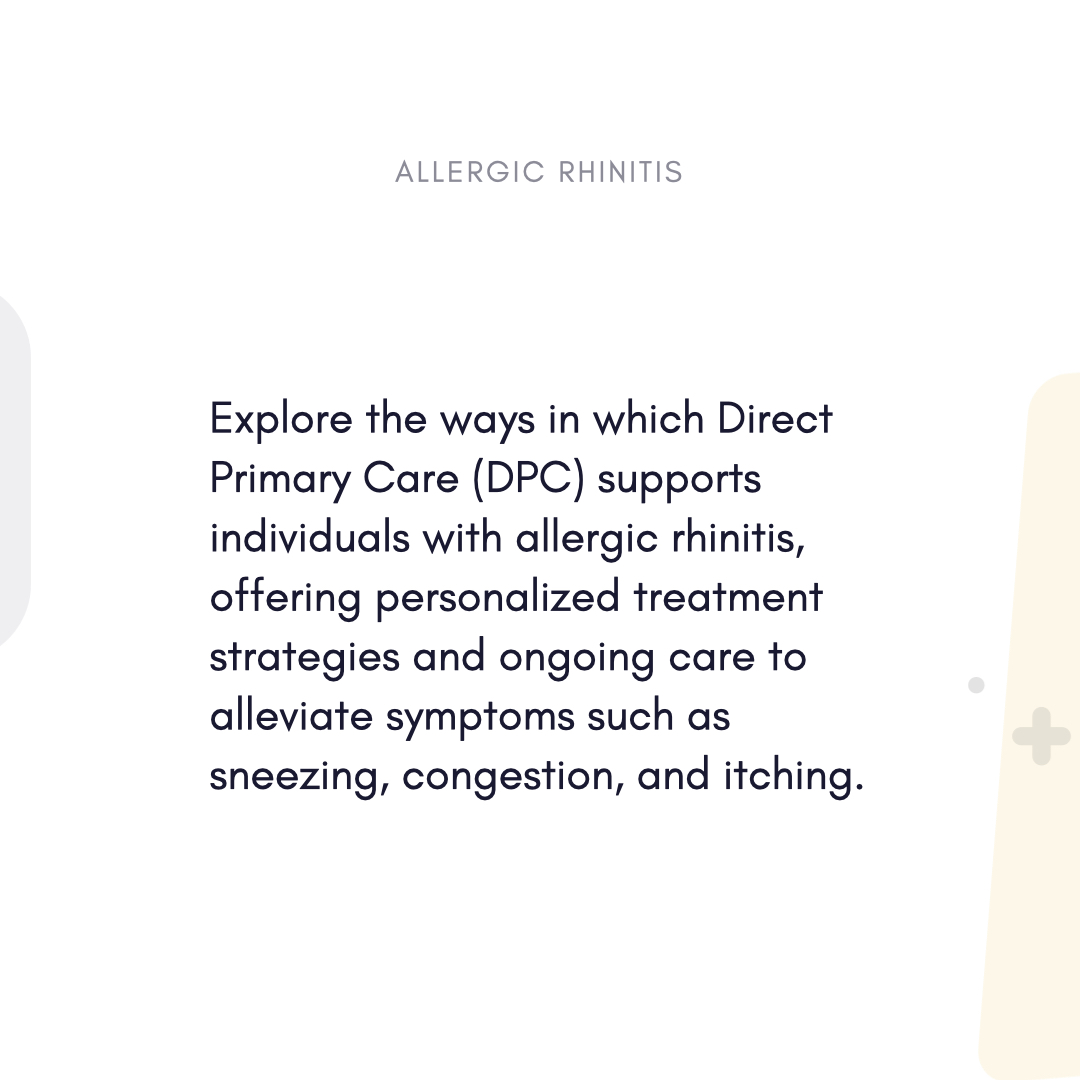



Hay fever, also known as allergic rhinitis, is a common allergy that causes inflammation of the nasal passages in response to exposure to allergens. There may be sneezing, nasal congestion, runny nose, itching of the nose and eyes, and postnasal drip as symptoms. It is important to identify and avoid allergens in order to alleviate symptoms of allergic rhinitis. Let's explore how Direct Primary Care (DPC) can play a crucial role in managing allergic rhinitis in a patient-centered approach.

Pollen, dust mites, pet dander, and mold spores can trigger allergic rhinitis because the immune system overreacts. As a result of exposure to these allergens, histamine and other inflammatory chemicals are released, resulting in nasal inflammation and allergic rhinitis symptoms. Depending on the allergen triggers and the time of year, the condition can be seasonal or perennial.
DPCs provide patients with direct access to their primary care provider without referrals for a comprehensive evaluation and diagnosis. With this accessibility, allergic rhinitis symptoms can be comprehensively evaluated and diagnosed, including a detailed medical history, physical examination, and allergy testing if necessary.
As part of the holistic management of allergic rhinitis, it is important to identify and minimize allergen exposures in order to prevent future flare-ups as well as treat acute symptoms. To alleviate symptoms and improve quality of life, DPC providers provide holistic management strategies, including education, allergen avoidance measures, and pharmacological treatments such as antihistamines, nasal corticosteroids, decongestants, and allergy shots (immunotherapy).
In order to maintain symptom control and prevent complications such as sinus infections and asthma exacerbations, allergic rhinitis may require ongoing management and monitoring. To optimize patient outcomes and satisfaction, DPC providers conduct regular follow-up appointments, monitor patient response, and adjust management plans as necessary.
In order to manage allergic rhinitis, it is essential to identify and avoid allergen triggers. A DPC provider works with patients to identify potential allergens in their environment, such as pollen, mold, dust, or pet dander, and develop customized strategies to reduce exposure, reduce allergic reactions, and improve symptoms.
Individualized Treatment Plans: The severity of symptoms, allergen triggers, and patient preferences may determine which treatment plan is best for allergic rhinitis. In order to optimize patient satisfaction and treatment outcomes, DPC providers tailor treatment plans to each patient's unique needs, considering factors such as symptom severity, medication tolerance, lifestyle factors, and cost considerations.
Education on Allergy Management: When patients with allergic rhinitis use proper allergy management practices, their symptoms can be alleviated and their quality of life improved. To minimize symptoms and prevent complications, DPC providers teach patients about allergen avoidance, medication use, nasal irrigation, and environmental control measures.

For individuals with allergic rhinitis, Direct Primary Care offers significant benefits. Using comprehensive evaluations, holistic management approaches, personalized treatment plans and ongoing support, DPC enables patients to effectively manage their symptoms and improve their quality of life. Allergy rhinitis patients can navigate their condition with confidence and resilience by embracing this patient-centered approach to healthcare.